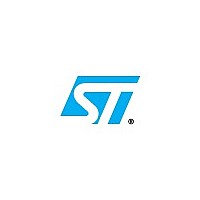ST92T141K4M6 STMicroelectronics, ST92T141K4M6 Datasheet - Page 142

ST92T141K4M6
Manufacturer Part Number
ST92T141K4M6
Description
Microcontrollers (MCU) OTP EPROM 16K SPI
Manufacturer
STMicroelectronics
Datasheet
1.ST92T141K4B6.pdf
(179 pages)
Specifications of ST92T141K4M6
Data Bus Width
8 bit, 16 bit
Program Memory Type
EPROM
Program Memory Size
16 KB
Data Ram Size
512 B
Interface Type
SPI
Maximum Clock Frequency
25 MHz
Number Of Programmable I/os
15
Number Of Timers
2
Operating Supply Voltage
4.5 V to 5.5 V
Maximum Operating Temperature
+ 85 C
Mounting Style
SMD/SMT
Package / Case
SO-34
Minimum Operating Temperature
- 40 C
On-chip Adc
8 bit, 6 Channel
Lead Free Status / Rohs Status
No
Available stocks
Company
Part Number
Manufacturer
Quantity
Price
- Current page: 142 of 179
- Download datasheet (2Mb)
ST92141 - SERIAL PERIPHERAL INTERFACE (SPI)
SERIAL PERIPHERAL INTERFACE (Cont’d)
7.5.4.5 Master Mode Fault
Master mode fault occurs when the master device
has its SS pin pulled low, then the MODF bit is set.
Master mode fault affects the SPI peripheral in the
following ways:
Clearing the MODF bit is done through a software
sequence:
1. A read or write access to the SR register while
2. A write to the CR register.
Notes: To avoid any multiple slave conflicts in the
case of a system comprising several MCUs, the
SS pin must be pulled high during the clearing se-
quence of the MODF bit. The SPOE and MSTR
142/179
– The MODF bit is set and an SPI interrupt is
– The SPOE bit is reset. This blocks all output
– The MSTR bit is reset, thus forcing the device
9
generated if the SPIE bit is set.
from the device and disables the SPI periph-
eral.
into slave mode.
the MODF bit is set.
bits may be restored to their original state during or
after this clearing sequence.
Hardware does not allow the user to set the SPOE
and MSTR bits while the MODF bit is set except in
the MODF bit clearing sequence.
In a slave device the MODF bit can not be set, but
in a multi master configuration the device can be in
slave mode with this MODF bit set.
The MODF bit indicates that there might have
been a multi-master conflict for system control and
allows a proper exit from system operation to a re-
set or default system state using an interrupt rou-
tine.
7.5.4.6 Overrun Condition
An overrun condition occurs, when the master de-
vice has sent several data bytes and the slave de-
vice has not cleared the SPIF bit issuing from the
previous data byte transmitted.
In this case, the receiver buffer contains the byte
sent after the SPIF bit was last cleared. A read to
the DR register returns this byte. All other bytes
are lost.
This condition is not detected by the SPI peripher-
al.
Related parts for ST92T141K4M6
Image
Part Number
Description
Manufacturer
Datasheet
Request
R

Part Number:
Description:
STMicroelectronics [RIPPLE-CARRY BINARY COUNTER/DIVIDERS]
Manufacturer:
STMicroelectronics
Datasheet:

Part Number:
Description:
STMicroelectronics [LIQUID-CRYSTAL DISPLAY DRIVERS]
Manufacturer:
STMicroelectronics
Datasheet:

Part Number:
Description:
BOARD EVAL FOR MEMS SENSORS
Manufacturer:
STMicroelectronics
Datasheet:

Part Number:
Description:
NPN TRANSISTOR POWER MODULE
Manufacturer:
STMicroelectronics
Datasheet:

Part Number:
Description:
TURBOSWITCH ULTRA-FAST HIGH VOLTAGE DIODE
Manufacturer:
STMicroelectronics
Datasheet:

Part Number:
Description:
Manufacturer:
STMicroelectronics
Datasheet:

Part Number:
Description:
DIODE / SCR MODULE
Manufacturer:
STMicroelectronics
Datasheet:

Part Number:
Description:
DIODE / SCR MODULE
Manufacturer:
STMicroelectronics
Datasheet:

Part Number:
Description:
Search -----> STE16N100
Manufacturer:
STMicroelectronics
Datasheet:

Part Number:
Description:
Search ---> STE53NA50
Manufacturer:
STMicroelectronics
Datasheet:

Part Number:
Description:
NPN Transistor Power Module
Manufacturer:
STMicroelectronics
Datasheet:

Part Number:
Description:
DIODE / SCR MODULE
Manufacturer:
STMicroelectronics
Datasheet:











